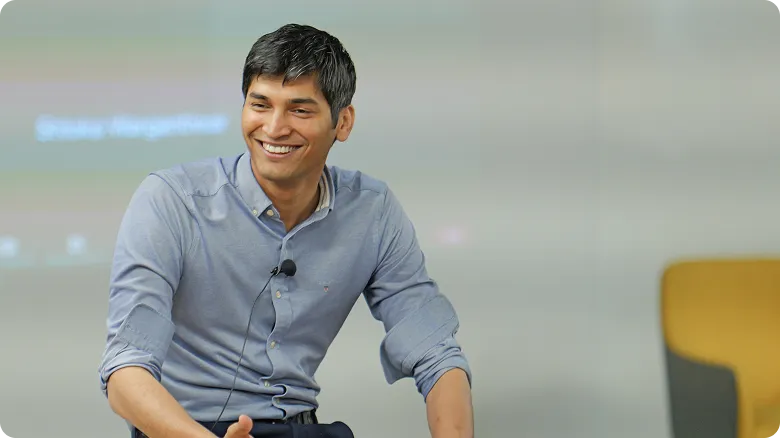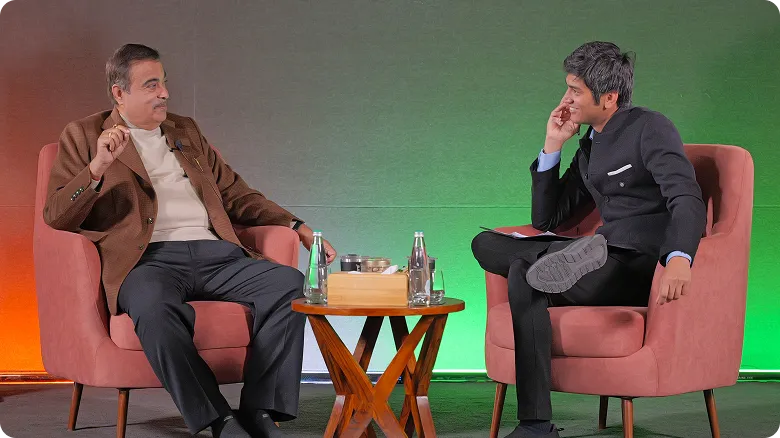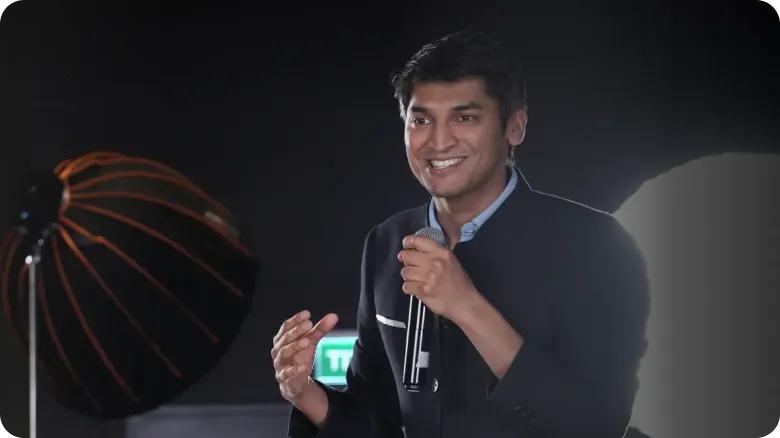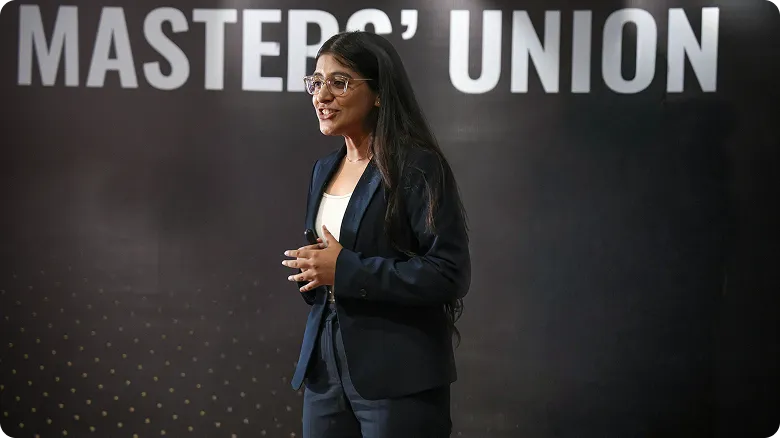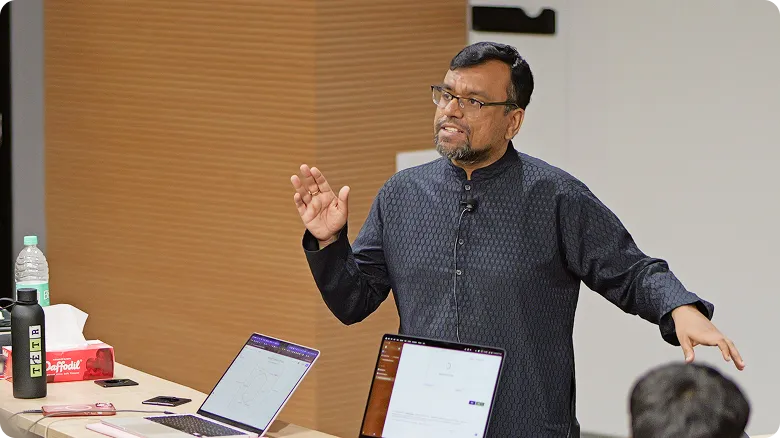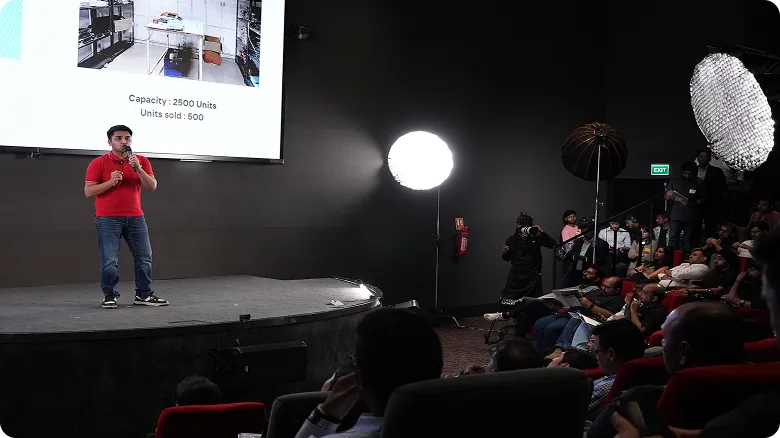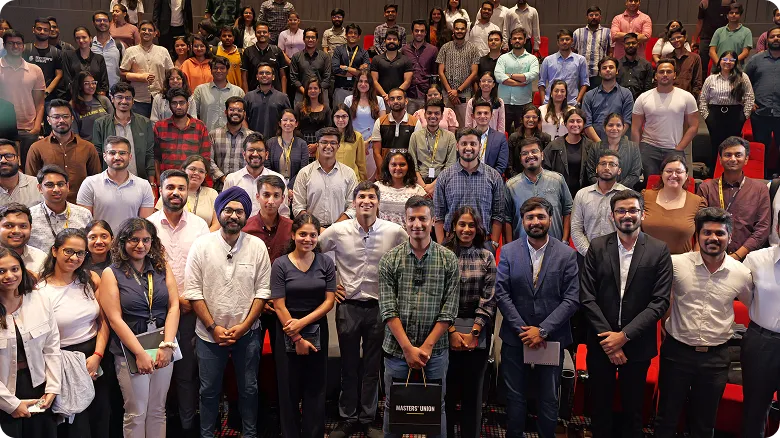Undergraduate
Undergraduate (Global)
Postgraduate
PGP in Technology and Business Management
PGP in Technology & Business Management
(Young Leaders Cohort)
PGP in Human Resources & Organisation Strategy
PGP in Sports Management & Gaming
PGP in Applied AI & Agentic Systems
PGP in UI/UX & Product Design
PGP in Sustainability & Business Management
PGP Bharat
Executive
Family Business
Careers
Innovations
Faculty
MU Ventures
Enterprise Education
Student Life
Jobs
Become a Master
events
For Companies
Blog
Business
INDmoney’s CEO on Startups, AI, & Finance: Masters’ Union
September 1, 2025
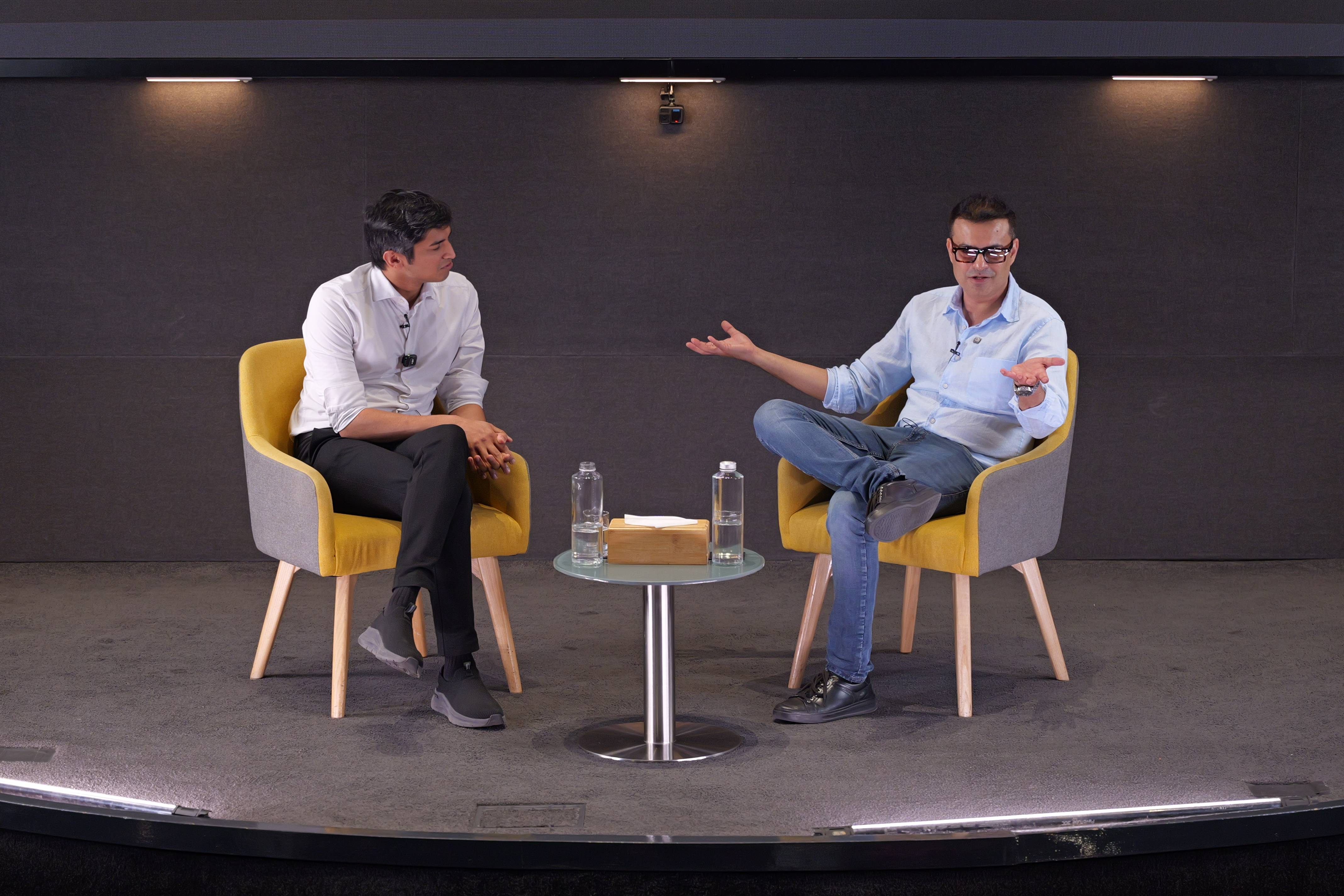
The recent fireside chat, where Pratham Mittal, founder of Masters’ Union, hosted Ashish Kashyap, CEO of INDmoney and founder of Ibibo Group (redBus, Goibibo), brought unfiltered insights to the Masters’ Union campus. Kashyap spoke about his journey of building ventures, the volatility of entrepreneurship, India’s lag in core technology, and how regulated innovation is shaping INDmoney’s path in finance.
The conversation moved beyond startup success stories, Kashyap spoke openly about the volatility of entrepreneurship, the realities of building in regulated industries, India’s position in the AI race, and how INDmoney is shaping financial behaviour for the next decade.
Startup Careers Vs Large Corporates
Kashyap urged students to think beyond the comfort of large multinational companies. In his view, early career growth happens inside the core problem-solving teams of startups.
At a startup, a three-year professional can sometimes create more value than a twenty-year veteran in a large corporation. Learning speed depends on proximity to the problem, not the size of the brand on your CV.
Startup Career Advice
-
Work in early or mid-stage companies, solving real problems.
-
Prioritise problem-solving teams over brand names.
-
Impact matters more than years of experience.
Entrepreneurship and the Founder Mindset
Entrepreneurship, Kashyap explained, is a volatile journey marked by swings between self-doubt and confidence. He highlighted resilience and honesty with oneself as the two non-negotiable traits for any founder.
He added that INDmoney has been harder to build than Ibibo, largely due to tight regulations and the scale of responsibility in financial services.
Entrepreneurship Lessons
-
Resilience is critical in the founder journey.
-
Self-doubt and confidence coexist in startups.
-
Tightly regulated sectors demand first-principles thinking.
India’s Position in Technology and AI
Kashyap acknowledged that India missed out on building core technologies like chips, GPUs, and foundational large language models. However, he sees a major opportunity in the adoption and application of AI to solve local problems.
He pointed to areas such as AI-driven financial advice and automated tax filing, which can impact millions of Indians. According to Kashyap, the next big shift may not be mobile-first but agent-driven interfaces and automated flows.
Technology and AI Opportunities
-
India lags in building foundational tech.
-
Massive scope in adopting AI for Bharat-specific problems.
-
Agent-driven interfaces may replace apps.
INDmoney’s Regulated Growth Strategy
Unlike many fintech startups that operate in regulatory grey zones, INDmoney has built its growth strategy around compliance and credibility. Ashish Kashyap outlined how the company has secured a US stocks license through Gif City, a domestic securities license, an NBFC license for lending, and an income tax license for automated filings. His philosophy is clear: stay regulated, compound credibility, and design products from first principles. With this foundation, INDmoney aims to help users beat inflation, manage money seamlessly, and automate taxation.
INDmoney’s Approach
-
Operate only within regulated sectors.
-
Secure licenses across domains.
-
Focus on simplifying money and compounding wealth.
Personal Finance Behaviour in India
On financial habits, Kashyap described Indian consumers as overly conservative, preferring savings accounts over investments. To bridge this gap, he proposed a “sachet approach”: micro-investments like ₹50 per day to break inertia.
This, he said, can build trust and gradually push Indians toward markets, creating long-term wealth beyond inflation.
Personal Finance Insights
-
Indians remain conservative with investments.
-
Micro-investing can change saving behaviour.
-
Wealth creation needs compounding beyond inflation.
Advice for Masters’ Union Students
When asked by Pratham Mittal what advice he’d give to UG students, Ashish Kashyap returned to first principles. He urged them to begin their careers at startups or mid-stage companies that are solving unique problems, rather than chasing the comfort of established corporates. He cautioned against replicating existing playbooks like Zerodha or Bajaj Finance, emphasising instead the need to build tools in uncharted spaces such as agentic AI, automation, and productivity. For students at Masters’ Union, his message was clear: the most meaningful learning and opportunity lie in solving problems that don’t yet have ready-made answers.
Career Advice for Students
-
Join startups solving original problems.
-
Don’t replicate established models.
-
Focus on agentic AI and automation opportunities.
Shaping Future Leaders at Masters’ Union
The conversation between Ashish Kashyap and Pratham Mittal highlighted what Masters’ Union prioritises: direct exposure to practitioners who have built ventures at scale and navigated volatility first-hand. For students, the session offered more than abstract theory—it provided a practical lens into the realities of startups, the challenges of regulation, and the possibilities emerging from AI and technology. Such interactions ensure that students leave the classroom better prepared to shape the future of business leadership.




